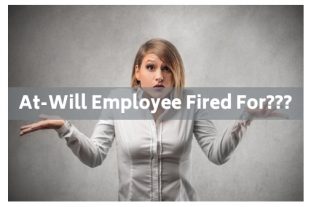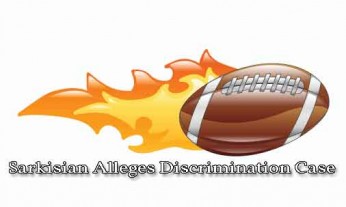 If you are an at-will employee, join the crowd. The majority of California employees are in the same situation, meaning you can leave your job whenever you choose, and employers can (mostly) fire you at any time, without ever citing a reason for the decision. However, if you suspect that you are being terminated for unlawful reasons, it may be worth pursuing legal action.
If you are an at-will employee, join the crowd. The majority of California employees are in the same situation, meaning you can leave your job whenever you choose, and employers can (mostly) fire you at any time, without ever citing a reason for the decision. However, if you suspect that you are being terminated for unlawful reasons, it may be worth pursuing legal action.
Can I be Fired if I am Doing a Good Job?
The short answer is yes. As previously stated, you can be fired any time at all, even if you are a stellar employee. Your boss is not legally required to explain the rationale behind the firing. However, if you think there might be discrimination or other issues at play, your employer should not be allowed to hide behind the at-will statutes.
Illegal Firings of At-Will Employees
Both state and federal laws are on the books to protect workers from unlawful termination. While you may be fired without cause, you can not be fired for reasons such as:
- Race, religion, sexual orientation, gender identity, age, gender, pregnancy, disability, or other protected status;
- Your political affiliations or actions away from work;
- As retribution for reporting issues related to worker safety, sexual harassment, hostile work environment, or discrimination;
- Because you reported illegal activity;
- Involvement in union activities or attempting to organize workers;
- Because you asked to take time off work to which you are legally entitled.
These are all illegal reasons to terminate an employee.
At-Will Employee Leave of Absence
Many employees do not realize that they are legally entitled to time off for certain events, even though they are at-will employees. In addition to maternity leave, employers must make reasonable accommodations for at-will workers who have disabilities impacting their mental or physical health. Furthermore, employees are protected from being fired for taking time away from the job for other important events, including:
- Participating in military service;
- Being called to serve on a jury or testify at a trial;
- Caring for a seriously ill family member;
- Voting in a statewide election (two hours).
At-Will Employee – Suspicions After Being Fired
Let us say you are an at-will employee and fired for no reason, or for a reason that you believe is invalid. If you think you were fired for an illegal reason, what should you do? At Beck Law P.C., we handle cases like this more often than you might think. If we take on your case, in preparing to fight back, there are some specific steps we can and will take, including:
- Collecting and examining written employment policies and procedures;
- Documenting issues that you believe are at the root of the termination. These include dates, names, and details about conversations you have had with management and fellow employees. For instance, if you think you are being fired based on age discrimination, what comments or events have occurred that substantiate your theory, and when did they occur?
- Assembling any physical evidence to support your claim, including emails, texts, MEMOs, and so forth.
- Interviewing witnesses to the issues.








